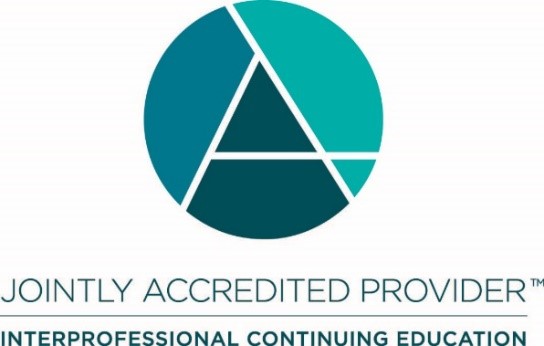Management of Metastatic Castration-Resistant Prostate Cancer
With next-generation imaging, patients may be identified as having metastatic disease who would be considered to have non-metastatic disease based on conventional imaging. Because clinical trials use conventional imaging to classify disease as non-metastatic vs metastatic, it remains unclear how best to treat patients whose metastases are only seen by next-generation imaging. Having expert insight into this conundrum would help clinicians better select treatments for their patients with CRPC. Furthermore, data on the use of systemic therapies for patients with metastatic CRPC is rapidly evolving, and clinicians need to be informed about the most recent clinical trial results, FDA approvals, and updates to the NCCN Guidelines for Prostate Cancer so that they can provide optimal care to their patients.
Target Audience
The program is designed to meet the needs and improve the competence and performance of the interprofessional oncology care team, including physicians, nurse practitioners, nurses, physician assistants, pharmacists, and other relevant health care professionals who manage the care of patients with cancer.
Learning Objectives
Following this program, participants should be able to:
- Describe imaging techniques used in the identification of distant metastases in patients with prostate cancer.
- Review data supporting the use of PARP inhibitors in patients with metastatic castration-resistant prostate cancer and mutations in certain homologous recombination genes.
- Integrate updates to NCCN Guidelines® for Prostate Cancer into clinical practice to optimize patient care.
Sandy Srinivas, MD
Stanford Cancer Institute
NCCN Continuing Education Disclosure Policy
It is the policy of NCCN that every 12 months, all faculty, moderators, activity planners and all internal planning staff participating in NCCN continuing education activities are expected to disclose any financial relationships with a commercial interest. In addition, all faculty presentations have been reviewed to ensure education is fair and balanced and that clinical content presented supports safe, effective patient care. Individuals who do not disclose relevant financial relationships will be disqualified from involvement in the CE activity as a content developer, planner, or presenter.
Definitions
NCCN continuing education considers financial relationships to create a conflict of interest when an individual has both a financial relationship with a commercial interest and the opportunity to affect continuing education content about the products or services of a commercial interest with which he/she has a financial relationship.
NCCN continuing education considers relevant financial relationships as financial relationships in any amount occurring within the past 12 months that create a conflict of interest. NCCN does not set a minimal dollar amount for relationships to be significant. Inherent in any amount is the incentive to maintain or increase the value of the relationship.
Faculty Disclaimers
All faculty for this continuing education activity are competent in the subject matter and qualified by experience, training, and/or preparation for the tasks and methods of delivery.
Faculty presentations may include discussion of off-label use. Faculty will disclose that the use in question is not currently approved by the FDA per the product labeling.
Faculty Disclosures
The faculty listed below discloses the following relevant financial relationships:
Sandy Srinivas, MD
Bayer HealthCare: Scientific Advisor; Grant/Research Support
Endocyte: Grant/Research Support
Exelixis Inc.: Grant/Research Support
Moderator Disclosures
The faculty listed below discloses the following relevant financial relationships:
Joshua M. Lang, MD
Astellas Pharma US, Inc.: Consulting Fees
Immunomedics, Inc.: Consulting Fees
Janssen Pharmaceutical Products, LP: Consulting Fees
Pfizer Inc.: Consulting Fees
Salus Discovery, LLC: Equity Interest/Stock Options
Sanofi-Aventis U.S.: Consulting Fees
NCCN Staff Disclosures
The NCCN Leadership listed below discloses no relevant financial relationships:
Robert W. Carlson, MD; Wui-Jin Koh, MD; Gary J. Weyhmuller, MBA, SPHR
The NCCN Activity Planning staff listed below discloses no relevant financial relationships:
Mike Abrams; Melissa Esplen; Mark A. Geisler; Kristina M. Gregory, RN, MSN, OCN; Kristin Kline Hasson; Rose Joyce; Karen Kanefield; Lisa Perfidio, MS; Shannon Ryan, CMP; Kathy Ann Smith, CHCP; Sarah Weinstein
The NCCN Clinical staff listed below discloses no relevant financial relationships:
Deborah A. Freedman-Cass, PhD; Dorothy A. Shead, MS

In support of improving patient care, National Comprehensive Cancer Network (NCCN) is jointly accredited by the Accreditation Council for Continuing Medical Education (ACCME), the Accreditation Council for Pharmacy Education (ACPE), and the American Nurses Credentialing Center (ANCC), to provide continuing education for the healthcare team.
Physicians
NCCN designates this enduring material for a maximum of 0.75 AMA PRA Category 1 Credit™. Physicians should claim only the credit commensurate with the extent of their participation in the activity.
Nurses
NCCN designates this educational activity for a maximum of 0.75 contact hour.
Pharmacists
NCCN designates this knowledge-based continuing education activity for 0.75 contact hour (0.075 CEUs) of continuing education credit. UAN: JA4008196-0000-21-054-H01-P
Physician Assistants
NCCN has been authorized by the American Academy of PAs (AAPA) to award AAPA Category 1 CME credit for activities planned in accordance with AAPA CME Criteria. This activity is designated for 0.75 AAPA Category 1 CME credit. Approval is valid until March 1, 2022. PAs should only claim credit commensurate with the extent of their participation.
Available Credit
- 0.75 AAPA Category 1 CME credit
- 0.75 ACPE contact hours
- 0.75 AMA PRA Category 1 Credit™
- 0.75 ANCC contact hours
- 0.75 Participation
Required Hardware/software
To complete this activity, users will need:
- A device with an Internet connection and sound playback capability
- One of the two latest versions of Google Chrome, Mozilla Firefox, or Safari
- Internet Explorer is no longer supported
- Adobe Reader or other PDF reader software for certificate viewing/printing

 Facebook
Facebook X
X LinkedIn
LinkedIn Forward
Forward